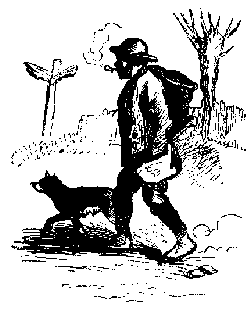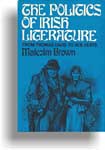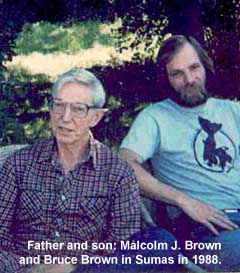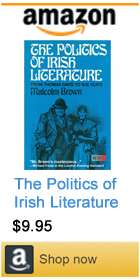Chapter Twelve
O'Leary and the Irish People
THE MAIN TRUNK of Stephens' revolutionary tree was his secret Irish army, awaiting the issuance of arms. At the peak of Fenian power, this army numbered about eighty thousand civilians, plus fifteen thousand soldiers in the British army, half of them in the Irish garrison regiments and half in northern England. The principal graft upon the trunk was the American brotherhood, an open, legal organization with about forty-five thousand members. To the main stem he had also grafted another branch, an open, agitational, home-soil mass organization called the Brotherhood of St. Patrick. It required no secret oath, hoping to circumvent the Church ban on Carbonaritype organizations, but Cullen simply listed it among the other forbidden fruits and it instantly blighted and dropped off the tree.
The last of Stephens' structural additions to Fenianism was a weekly newspaper, the Irish People. Ever since the original quarrel with A. M. Sullivan in 1858, the Fenians had been working closely with a newspaper called the Irishman, the Nation's rival weekly. Judging from the abruptness with which it dropped its anti-Fenian stance to take up the terms "felonsetter" and "A. M. Sullivan-Goulah," one can only infer that Stephens had subsidized its publication. This working arrangement was upset by the Fenians' urgent need for money. Luby's arithmetic had led him to imagine that a Fenian newspaper could earn a profit of a thousand pounds a month. Although Stephens believed that a conspiracy ought not to have any newspaper, he was won over by the lure of cash, and on November 28, 1863, the first issue appeared.
Stephens rounded up John O'Leary to help him with the editing; and O'Donovan Rossa, Luby, and Kickham were also added to the staff. Each week after the paper had gone to press, the editors met to relax, like the Young Irelanders in Davis' time. Usually they made their supper of bread and tea, but Kickham remembered a feast that had been sent in as a gift to Rossa by a west Cork patriot:
- After the wild duck and snipe, which had come all the way from Cape Clear . . . there came walnuts and oranges. It is fair to admit that there was also a decanter of what seemed to be the very best Irish whisky, as Luby and O'Leary appreciated a stiff tumbler of whiskey punch. . . . The "Chief Organizer" did not affect the more national beverage, but seemed to have a decided relish for a glass of Guinness's porter. Methinks I see him now-Shakespearian head, flowing auburn beard, lady hand, and all - as he takes his meerschaum from his lips, and pointing with the amber-tipped cherrywood tube to the table, says "If some people saw that now, what noise there would be about our luxurious habits!"
In three weeks O'Leary was left in full command of the paper. Stephens produced three weighty leading articles and fell back exhausted. With his retirement the paper became O'Leary's entire responsibility, and remained so for the rest of its existence. O'Leary ordinarily wrote only a single article each week, identified as he explained by the scattering of his "perhapses" as contrasted with the "indubitablys" of the other staff contributors. Yet the paper as a whole was really his, since after all he was the editor in chief. If there is a referent for Yeats's epithet "romantic" to describe O'Leary in that well-worn phrase, one should find it in the files of the Irish People.
As a money-maker, the Irish People was a disappointment. The Nation had pre-empted all the more substantial nationalists, so that "there was no public, at least no vocal or literary public, in the least prepared to receive us," O'Leary said. Most of the "talking and writing people" were violently opposed to physical force, and were not absolutely sure of their desire for national independence even if it were free gratis . The Irish People thus had very little success in raiding the new Nation's private preserve, and it was T. D. Sullivan's pleasant revenge to be able to say of it in his memoirs, "-- and it never paid."
II
As a follower of Davis' teaching, O'Leary felt a special obligation to resurrect Irish cultural nationalism and be once more "racy of the soil." An incorrigible bibliophile, he took up Young Ireland's poetic production at the exact point where it had been interrupted by Davis' death almost twenty years before. Volume one, number one, opened up the literary front with a professional poem by Robert Dwyer Joyce, author of "The Boys of Wexford":
- A stricken plain is good to see,
- When victory crowns the patriot's sword,
- And the gory field seemed fair to me
- Won by our arms at Manning Ford.
This no-nonsense start was approved by the public, for the Irish People was immediately deluged with a flood of unsolicited martial verse. O'Leary remarked that "patriotism seems to take a peculiar delight in the manufacture of bad verse, while those who make a good article in this kind are too often not over patriotic." His first editorial job, like Gavan Duffy's on the old Nation, was to try to turn back the tide. He cultivated a caustic style, and in the twelfth issue he wrote: "We have received this week such a pile of verses that, though very tired we are tempted to give what we were going to call our poetical contributors a few hints. We confess we do this chiefly to save our own time; for though we are usually told that the authors are hard worked, and only write in the intervals of labor, we are afraid they must have too much time to spare, or rather to waste."' There followed a serialized public controversy between O'Leary and the wounded amateur poets. In its course he quoted selections from their works in self-defense, and thus compiled a little anthology of bad patriotic verse along the lines of...
|
|
Table of Contents
|

|
Astonisher.com is pleased to offer these excerpts from The Politics of Irish Literature by Malcolm Brown...
Praise for
The Politics of Irish Literature |
 |
|
"This brilliant study of the intersection of politics and literature in Ireland amounts to a dazzling portrait gallery. Reading it one feels about one the breath, warmth, and passions of the dead all come alive again."
-- Sean O'Faolain in the Manchester Guardian
"Mr. Brown's masterpiece has made me want to hire a nearby housetop and recite whole chunks to every passerby..."
-- Michael Foote in the London Evening Standard
"The author of the best book on George Moore now gives us what is in all likelihood the best book on the politics of modern Irish literature."
-- Virginia Quarterly Review
|
|

University of Washington Professor Malcolm J. Brown (1910 - 1992) with his son, Bruce Brown, in Sumas, WA, July 1988.
|
Additional reading -- Malcolm Brown's George Moore: A Reconsideration. Also see Bruce Brown's commentary on The History of the Corporation for Malcolm Brown's contribution to that work.
|
|
|






